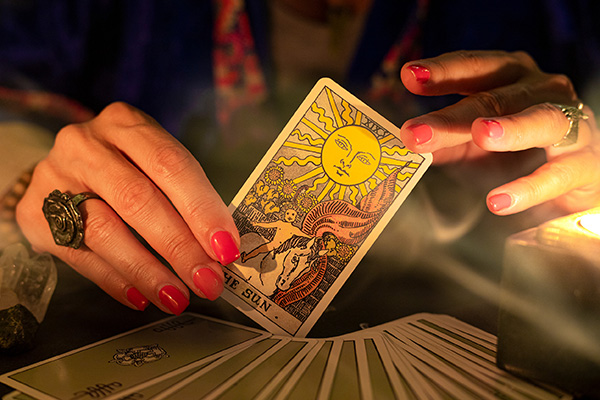Grasping Interaction with Our Animals in This Existence and the Next
 Some of the most heartwarming messages I’ve encountered as a medium have originated from beloved pets who have crossed over.
Some of the most heartwarming messages I’ve encountered as a medium have originated from beloved pets who have crossed over.
They convey sensations of love, appreciation, and the comforting assurance that they remain with their human companions in spirit. Furthermore, they share wisdom and understanding regarding their owners’ lives through their distinct viewpoint.
Experiencing the perpetual affection of a pet from the other side is incredibly touching. The sorrow of losing a pet is frequently overlooked or dismissed, yet it is genuine and significant to address and share.
It’s been several years since we bid farewell to our cherished family dog, Lucy. She left us in 2016, just short of her 17th birthday, and I struggle to fully articulate the love and happiness she bestowed upon our lives.
By sharing how she facilitated my communication with her – both during her life and after her departure – I hope her narrative helps you establish a profound connection with your own pets on the other side.
Lucy’s journey began shortly before Christmas in 1999. Our intention was to purchase storage boxes for an impending move, yet we returned with a puppy nestled in a box! From that moment, she burst into our lives and stole our hearts.
For a small dog, she experienced a remarkably full life. She accompanied us wherever we went – by boat, by plane, even across continents when we transitioned to Dubai. She reminded us that as long as we were together, life was one grand tail-wagging adventure.
Lucy played the role of my devoted mentor in honing my animal communication abilities. She was exceptional at it and guided me with her presence. Learning to connect with her in this manner was a true blessing, particularly when the time arrived to assist her in her transition. Although she allowed me a few days to prepare, the choice to help her cross the Rainbow Bridge was undeniably heart-wrenching.
If there is a heaven, I believe our animals reside there. Their lives are so closely intertwined with ours that it would require more than an archangel to separate them ~ Pam Brown
The night she passed, Lucy made her presence felt. As we lit a candle in her memory, her energy permeated our home. It was distinctly felt, palpable to all of us. She felt larger than life, and we could sense her joy. She was liberated from pain and filled with appreciation. Even amid our sorrow, her love shone brightly.
Lucy would often say, “Never feel sad for me.” In her final days, I sought affirmation from other animal communicators to confirm the messages I was receiving. I wanted to ensure I wasn’t extending her suffering. Each time, the message was unequivocal:
This is not my time. I have significant work to do. I am needed.
I have connected with Lucy many times since her transition. This is her message regarding letting go:
I was significant. My presence was meaningful. It was felt. It was precious. Thus, my passing also held significance.
For those mourning their beloved pets – grieve alongside them. Speak to them. Write to them. Reflect on the love and lessons they imparted in your life. This acknowledgment carries the light of their love as you navigate the pain of their departure.
Understand that they are never far away. They sense your love and your tears. Even in spirit, they still view themselves as part of your life – your soul family. For they arrive to remind us that we are all one.
In my journey to process my grief, I created a painting of Lucy. This creative act was profoundly healing, allowing me to bridge my sorrow and feel her presence more distinctly. If painting or sketching isn’t your preference, consider crafting an album or tribute to honor your pet. Whatever approach you choose, it is vital to say goodbye and thank them for their time on this side of the Rainbow Bridge.
Animals grant us numerous gifts and insights. Each one has its unique strengths and wisdom. Their adaptability teaches us how to forge our paths. Dogs, in particular, impart the joy of connection and the power of loyalty and unconditional love.
If you have a dog by your side today, bend down and give him a pat on my behalf.
Telepathic communication is a psychic connection with the soul or spirit of animals—their essence or true self, including their thoughts, purposes, values, perceptions, understanding, and other mental and spiritual qualities ~ Penelope Smith
Practical Guidance for Animal Communication
Set aside sacred time together. Designate time to be in the presence of your pet. Being outdoors in a garden or park can enhance this experience as nature helps ground your energy.
Open a telepathic connection. Invite your pet to connect telepathically by sending thoughts and images in your mind. Ask to receive messages in return through images, words, or sensations.
Notice their responses. Be aware of their characteristics and any shifts in their behavior—this might be their way of responding to you.
Allow space for communication. Give time and space after sending a thought to recognize and appreciate their response.
Trust the process. Trust that they will discover a way to communicate with you. Over time, you may notice that words come to mind spontaneously, often at unexpected moments.
Remain relaxed and open. Approach the communication with a relaxed mindset, viewing your pet as entirely capable of connecting in this way.
Practice daily and enjoy. Make it a daily routine to send mental images to your pet, and, most importantly, have fun with the process. Keep it light and enjoyable.
Our pets yearn to connect with us. They are forever listening, always present, and remain an integral part of our journey, both in this life and beyond.
|
Cheanne’s divine gifts emerged during her early 20’s, when this young Australian accountant was suddenly inspired to take a creative art class. On the blank canvas, she vividly saw a face that moved her deeply, so she painted it. The brush seemed to possess a life of its own, revealing the divine presence of Buddha. Suddenly, she understood that we are not alone, a realization that has stayed with her ever since! Messages and healing have flowed through her artwork and intuitive sessions that connect clients with spiritual guidance to navigate life’s transitions and challenges. She also assists clients in unfolding and experiencing their unique gifts. Since 2013, Cheanne has aided business owners in realizing their creative visions, provided clients with portraits of their Angels and Guides, and has conveyed messages at New Age Festivals, Expos, from her local practice room, home studio, via phone and internet, and through numerous group workshops and intimate retreats. Her unconditional, loving support has impacted thousands, acting as a conduit to unite clients with profound Divine Guidance. You can find this extraordinary and immensely talented Intuitive at PsychicAccess.com. |
Understanding Communication with Our Pets in This Life and Beyond
Pets occupy a unique space in our hearts, offering us unconditional love, companionship, and happiness. Be it a devoted dog, a playful cat, or a chirpy bird, our furry and feathered companions possess a remarkable ability to understand and relate to us. But have you pondered whether our communication with them transcends this life? Can we still connect with our cherished pets even after they have crossed the rainbow bridge? Let’s delve into the intriguing realm of understanding communication with our pets both in this life and beyond.
In this life, our interactions with pets are predominantly non-verbal. Although they may not comprehend our spoken language, they are astoundingly perceptive and can sense our emotions, body language, and even subtle signals. Dogs, for instance, are masters at interpreting our facial expressions and body language, allowing them to gauge our feelings and react accordingly. Cats express themselves through a mix of vocalizations, movements, and even purring, which can convey a spectrum of emotions from happiness to discomfort.
To enhance our understanding of pets, it is vital to learn their distinct communication styles. Observing behaviors such as tail wagging, ear positions, or meowing patterns can yield valuable insights into their needs and desires. In addition, spending quality time, engaging in play, and providing positive reinforcement can tighten the bond and improve communication.
But what transpires when our beloved pets depart? Is it feasible to sustain a connection with them in the afterlife? While the scientific community may remain doubtful, numerous pet owners have reported experiencing signs and messages from their deceased pets.
A prevalent phenomenon is sensing their presence. Pet owners frequently report feeling their pet’s energy or hearing familiar sounds, even in their absence. Some believe these experiences serve as a means for our pets to inform us that they remain near, watching over us from the other side.
Another manner through which our pets might communicate from beyond is through dreams. Many pet owners encounter vivid dreams wherein they reunite with their departed pets, experiencing feelings of comfort and assurance. These dreams can provide solace and a sense of closure for those grieving the loss of their animal companions.
Some people also seek out mediums or animal communicators to link with their pets in the afterlife. These individuals assert they possess the ability to communicate with animals on a spiritual level, bridging the divide between the physical and spiritual worlds. While the validity of these practices varies by individual belief, many pet owners find comfort and healing through these connections.
Irrespective of whether communication with our pets is attainable in the afterlife, it is essential to treasure the memories and the bond established during their time with us. Reflecting on their distinctive personalities, quirks, and the love they shared can offer comfort and healing.
In conclusion, understanding communication with our pets in this life and beyond is a captivating and deeply personal adventure. While our pets may not grasp our spoken words, they inherently connect with us emotionally. And although the scientific community continues to scrutinize communication with pets after death, countless pet owners have reported signs and messages that provide comfort and reassurance. Whether through dreams, feelings of presence, or engaging with mediums, the bond we maintain with our pets transcends the physical realm, leaving an indelible mark on our hearts. Continue reading

















